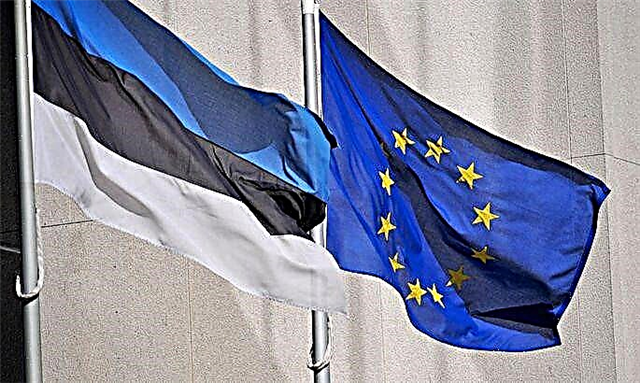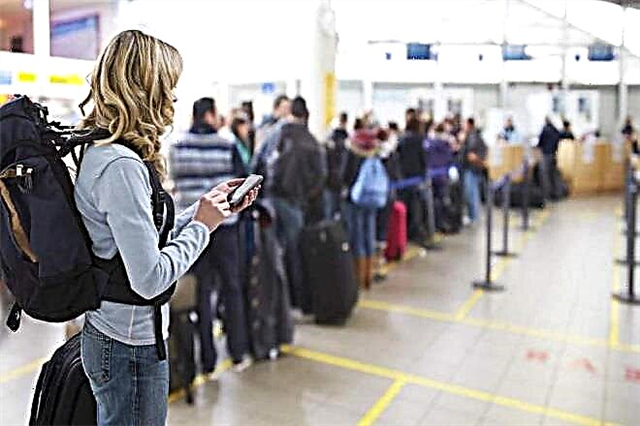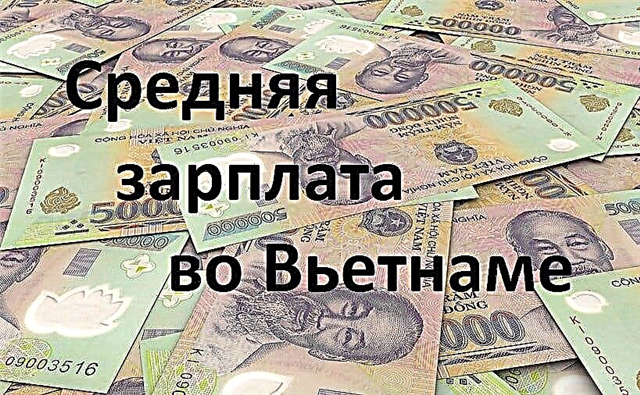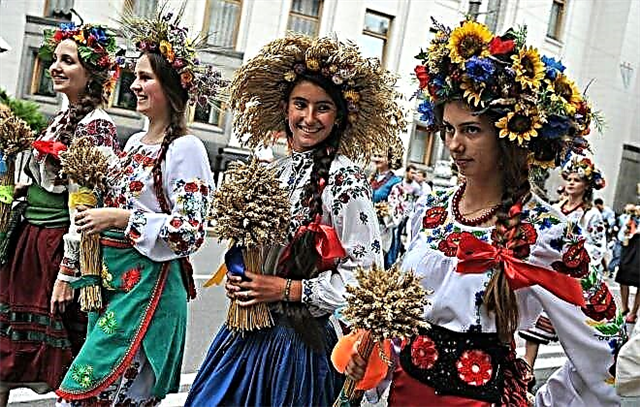In recent years, many representatives of the former post-Soviet states have come to the Czech Republic to study or work. In order to better navigate the Czech realities, it is important for visitors to know what opportunities open up for migrants in this country and what rights are enjoyed by the nationalities and ethnic groups of the Czech Republic.

What nations and nationalities live in the Czech Republic
As of the beginning of 2021, the population of the Czech Republic is 10.6 million people, of which 5% are foreigners. The main peoples of the Czech Republic are ethnic Czechs, Moravians and Silesians. The official status of national minorities is enjoyed by Ukrainians, Slovaks, Poles, Germans and Hungarians. All peoples inhabiting the Czech Republic enjoy the same rights on its territory.
The largest national diaspora of the Czech Republic is Ukrainian (84,000 Ukrainians live here permanently and 38,500 - temporarily). There are almost 100,000 Slovaks, about 60,000 Poles, over 58,000 Vietnamese and over 36,000 Russians. There are also Germans, Gypsies, Jews and Romanians.
Speaking about what peoples live in the Czech Republic, it should be noted that in this country - unlike Germany, France or Italy - there are practically no Arabs and Africans. Czechs need labor and willingly accept foreign migrants, but only those who are willing to work honestly, obey local rules and not create problems with the law. Therefore, the ethnic composition of the newcomers is strictly controlled.
The Czechs are sharply negative towards immigrants from the countries of the Middle East and Africa, who often seek to impose their own traditions on the indigenous people and live on social benefits or at the expense of petty crime. In this regard, the Czech government resolutely blocks all attempts of this category of migrants to enter the country.
The indigenous population of the country
The Czech Republic is a country that belongs to the category of mono-nationalities: about 95% of its inhabitants are ethnic Czechs and belong to the West Slavic language group. The state includes three historical regions: Bohemia, Moravia and part of Silesia. In them, about 80% of the population are Czechs, 13.5% are Moravians and 0.1% are Silesians. The indigenous population of the Czech Republic, regardless of ethnicity, adheres to common traditions and worldview.
In addition, the peoples living in the Czech Republic over the past millennium include Jews, Slovaks, Poles, Germans and Gypsies (Roma). These national minorities are largely assimilated into Czech society and are the same full citizens of the country as the ethnic Czechs.
Vietnamese settlers
The Vietnamese diaspora in the Czech Republic is one of the largest in the world. About 60 thousand Vietnamese live in the Czech Republic legally and, according to some sources, about the same number - illegally. In the 50s and 70s of the twentieth century, Vietnamese citizens came here en masse to study within the framework of an interstate agreement, and most of them never returned to their homeland. Thanks to their hard work, non-conflict and entrepreneurial spirit, Asian migrants fit perfectly into Czech society. Most of them profess Buddhism, which does not allow them to impose their own cultural traditions on others.
Vietnamese know the Czech language well, get a good education, abide by the laws and honor the traditions of the country. They work in various fields, occupying entire public niches: they run small department stores, grocery stores, nail salons, Asian cafes, currency exchange offices.
Vietnamese establishments are open from 8 a.m. to 10 p.m. 7 days a week (unlike Czech ones, which have a 5-day work week and a 6-hour work day), which attracts customers to them.
Many Vietnamese in the Czech Republic are from the second and third generations of former migrants.
Europeans in the Czech Republic
A significant number of foreigners who have arrived here from Western Europe live in the Czech Republic. Germans, Dutch and British are attracted by the mild climate and favorable conditions for doing business. The fact is that in the Czech Republic it is allowed to register enterprises with a minimum authorized capital, taxes are very democratic here, and the cost of living is low compared to other Western European countries.
European youth are attracted by the opportunity to receive an inexpensive education, the level of which in the Czech Republic is quite high.
The diplomas of the universities of the Czech Republic are recognized all over the world, English-language education is successfully practiced, and in the state language foreign students can receive higher education for free. A lot of students, postgraduates, researchers and teachers come to the Czech Republic on university exchange programs.

In turn, Slovaks, Romanians and Hungarians are attracted by the stable economic situation in the country, the opportunity to find a good job in the Czech Republic and provide themselves with a decent standard of living.
Jewish diaspora
Jews have been living in the Czech Republic for over 1000 years - since the 10th century. Initially, due to religious conflicts with local Christians, they settled in isolated ghetto areas. In 1254, King Přemysl Ottokar II drew up the "Jewish charter", according to which the Israelites became the personal subjects of the monarch. They received the right to move freely around the country, and an attack on a Jew was considered an encroachment on the king himself. Jews were engaged in financial transactions in the Czech Republic, which Christian Czechs considered "sinful", and provided loans to the state budget. Since the 16th century, the Jewish ethnos has been actively developing its own culture, education and literature in the Czech Republic. World famous Czech Jews include the writer Franz Kafka, the publisher Max Brod, and the psychoanalyst Sigmund Freud.
During the Nazi occupation and the Holocaust, 80 thousand representatives of the Jewish nation were killed in the country. Currently, about 10-11 thousand Jews live in the Czech Republic, most of whom do not belong to religious Jewish communities. Historic Jewish quarters, synagogues and cemeteries are among the country's famous landmarks.
Russians and Russian speakers
Russians are attracted to the Czech Republic by a higher standard of living than in the post-Soviet countries and the opportunity to enjoy the privileges provided by living in the Schengen area. Russians in the Czech Republic often buy real estate, open a business, receive a permanent residence permit and even Czech citizenship. Children of Russian migrants who have successfully graduated from Czech schools are issued a state certificate, which allows them to enter Czech universities and receive higher education at an international level free of charge.
Many qualified specialists from Russia - doctors, engineers, architects, programmers - go to the Czech Republic to work.
The republic has a program to attract people with higher education from post-Soviet countries. Participation in it guarantees official employment, social security, obtaining a residence permit, and subsequently Czech citizenship on preferential terms.
Recall that in 2021, about 36 thousand Russians lived in the Czech Republic.
What languages are spoken in the Czech Republic
The Czech language belongs to the West Slavic linguistic group and has three main dialects: Czech, Middle Moravian and East Moravian. Its foundations were formed in the XIII-XIV centuries. However, later, under the influence of German feudal lords and Catholic priests, who planted Latin and Germanic languages on the ethnic Czech territory, the national language began to decline.After several centuries under the rule of the Habsburgs and aggressive Germanization, the situation became almost critical: by the end of the 18th century, the whole Czech Republic spoke German, and no more than 15% of the population remembered their native language in the country.

The history of the revival of the Czech language seems almost incredible - it was saved and made popular thanks to the efforts of a small group of enthusiastic intellectuals under the leadership of Josef Jungmann. The revival of the language has become a powerful incentive for the unification and revival of the nation.
Currently, the Czech language is spoken by more than 10 million people in the world.
In the Czech Republic, it is state and commonly used. However, many members of the older generation are also fluent in German and Russian, and young people are fluent in English. About 3-4% of the population speaks the languages of national minorities.
Traditions and religious views
The Czech mentality is close to other Slavic peoples. The people of this country are known for their tolerance, friendliness and courtesy.
They are supportive of foreigners who behave correctly and respectfully in relation to the traditions of their country, and are intolerant of arrogance and rudeness.
Czechs honor their national customs, which date back more than one and a half millennia. On holidays, they wear ethnic clothes, love music and fun. In everyday life, they are distinguished by calmness and poise, they value order and practicality. In any situation, they try to behave with restraint, it is not customary for them to flaunt their emotions.
Most Czechs (up to 60%) are not religious. Catholics make up 25-27% of the indigenous people who inhabit the country; Evangelicals and representatives of the Hussite church account for about 1%. The Autocephalous Orthodox Church unites parishioners in the Czech Republic and Slovakia (less than 20 thousand people). About 3% of the population are Jews, Buddhists and Muslims.
Features of life in the Czech Republic
When planning employment or assessing the prospects for migration, it is important to know how foreigners live in the Czech Republic and what they can expect. The Czech Republic is one of the developed European countries, a member of the European Union and NATO, a signer of the Schengen Agreement. It is known for its progressive education and health care systems.
The state currency of the country is the Czech crown.
The level of salaries in the Czech Republic is lower than in the states of Western Europe, and on average is equivalent to 800-1500 euros per month.
Renting a house in Prague costs 400-700 € per month, 200-250 € is spent on food. In small towns, life is a little cheaper.
The Czech Republic is experiencing a shortage of labor, so it willingly invites foreigners to work. Officially employed foreign employees receive the same salary and benefits as Czechs. In addition, employers often provide them with free housing or pay on preferential terms.
Finally
The Czech Republic is predominantly a mono-ethnic country, but it is home to many different national minorities. The Czech people are tolerant, but have a negative attitude towards foreigners who do not want to work honestly and do not respect local laws. Therefore, representatives of the Slavic peoples, including Russians, are received most favorably in the Czech Republic. Migrants from Russia can count on decent working conditions and wages here.











